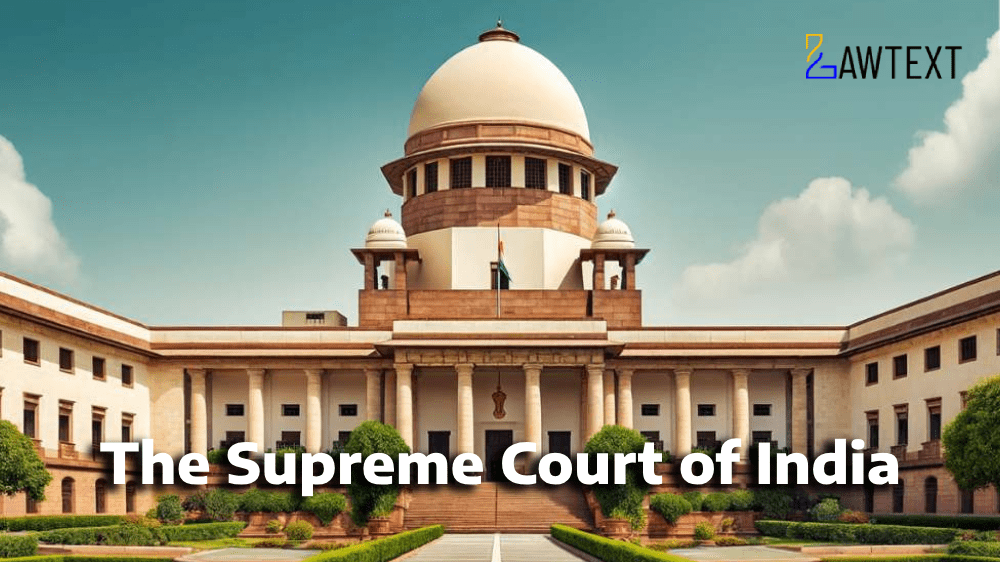

Constitution of India, 1950 – Article 21 – Protection of life and personal liberty – Invocation of stringent penal laws requires higher threshold of material evidence – State action must not be arbitrary – Judicial review necessary to prevent misuse – Relevant Paras: 23-26
Code of Criminal Procedure, 1973 (CrPC) – Section 482 – Inherent powers of the High Court – Quashing of FIR justified when allegations do not prima facie disclose a cognizable offence under the special Act – Relevant Paras: 24-26
Indian Penal Code, 1860 (IPC) – Sections 395, 427, 506, 420, 406, 120B, 504 – Allegations under IPC not automatically sufficient for invoking special anti-gangster legislation – Distinction between civil and criminal nature of disputes emphasized – Relevant Paras: 23-26
Uttar Pradesh Gangsters & Anti-Social Activities (Prevention) Act, 1986 – Sections 2(b) & 2(c) – Definition of Gang and Gangster – Invoking the Act requires clear evidence of threat, violence, or disturbance to public order – Acts of individuals in civil disputes do not constitute 'anti-social activities' within the meaning of the Act – Relevant Paras: 20-27
Quashing of FIR – Gangster Act Misuse – Civil Dispute Not Criminal Offence – Criminalization of Property Disputes – Strict Interpretation of Penal Laws – Inherent Powers of High Court – Right to Liberty under Article 21 – No Prima Facie Case for Gangster Act – Judicial Review of Special Penal Laws
a. Nature of the Litigation: – Criminal appeal against the rejection of writ petition seeking quashing of FIR under Uttar Pradesh Gangsters & Anti-Social Activities (Prevention) Act, 1986.
b. Relief Sought: – Petitioners sought quashing of the FIR, arguing that allegations pertained to civil property disputes and not anti-social activities under the Gangster Act.
c. Reason for Filing the Case: – Allegation of illegal invocation of Gangster Act based on pending civil disputes between families.
d. Earlier Decision: – High Court dismissed the writ petition but granted liberty to seek anticipatory bail.
a. Civil in Nature: Allegations in the FIR arose out of property disputes already pending in civil courts.
b. No Public Disturbance: No evidence of intimidation, violence, or coercion to disturb public order, which is a precondition under Section 2(b) of the Act.
c. Misuse of Law: State action was arbitrary and aimed at giving a criminal colour to private property disputes.
d. Precedents: Relied on Mohammad Wajid v. State of U.P., 2023 SCC OnLine SC 951 and Md. Rahim Ali v. State of Assam, 2024 SCC OnLine SC 1695 emphasizing strict interpretation of penal laws.
a. Gang Involvement: Appellants had a criminal history and were involved in multiple FIRs, justifying invocation of the Act.
b. Approval of Gang Chart: Commissioner of Police had granted approval based on available material.
c. Public Order Threat: Alleged acts of fraud, intimidation, and land grabbing were detrimental to public safety.
a. Pattern of Criminal Behavior: Petitioners had used intimidation tactics in multiple property disputes.
b. No Immunity in Civil Disputes: Criminal proceedings can be initiated even if civil litigation is pending.
c. Judicial Precedents: Cited Shraddha Gupta v. State of U.P., 2022 SCC OnLine SC 514, holding that even a single case can justify action under the Act.
a. Stringent penal laws require strict interpretation to prevent misuse.
b. Civil disputes cannot be given a criminal colour to justify invocation of special penal provisions.
c. Invocation of Gangster Act requires clear material demonstrating involvement in anti-social activities, not mere registration of multiple FIRs.
d. Judicial review essential to prevent arbitrary state action against individuals.
Citation: 2025 LawText (SC) (2) 122
Case Number: CRIMINAL APPEAL NO. ____ OF 202 5 [@ SPECIAL LEAVE PETITION (CRL.) NO. _____ OF 2025] [@ DIARY NO.23042 OF 2024]
Date of Decision: 2025-02-12
Case Title: JAY KISHAN AND ORS. VERSUS THE STATE OF UTTAR PRADESH AND ORS.
Before Judge: [SUDHANSHU DHULIA J. , AHSANUDDIN AMANULLAH J. ]
Appellant: JAY KISHAN AND ORS.
Respondent: THE STATE OF UTTAR PRADESH AND ORS.